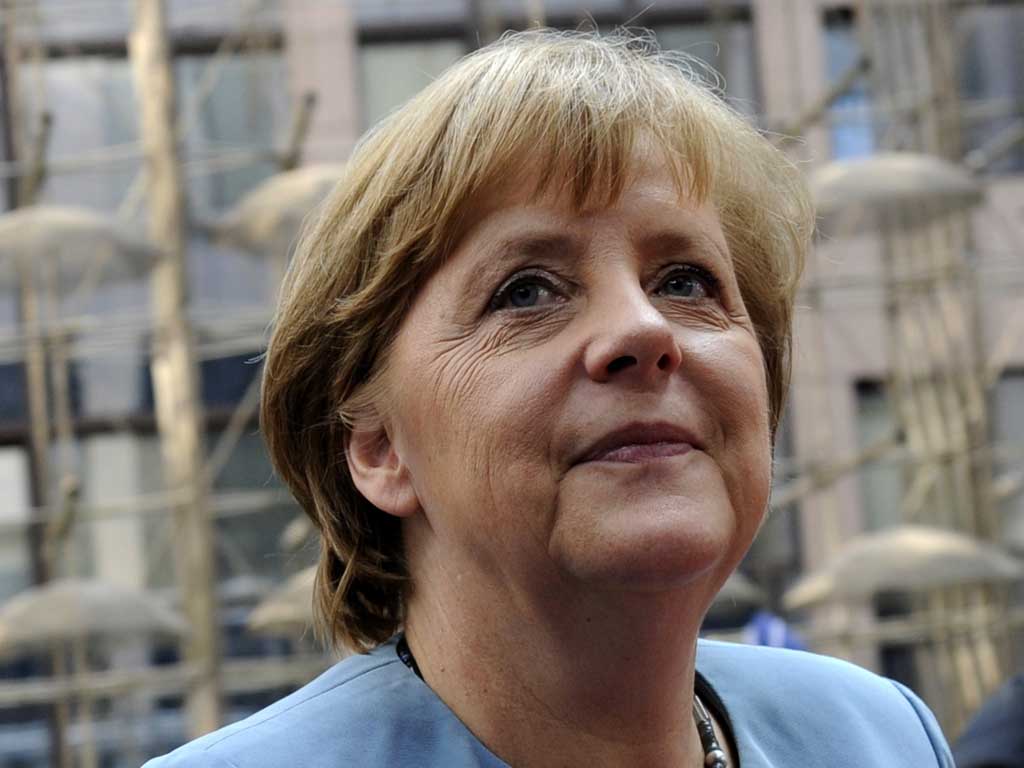
The “world’s most powerful woman” first staked her claim to greatness in 1999, with the publication of an open letter in Germany’s Frankfurter Allgemeine Zeitung. It called for the Christian Democrats to reject Helmut Kohl, the retired chancellor and her former mentor, and in doing so paved the way for Angela Merkel’s eventual election as party leader.
Despite this early hint at a ruthless streak, Merkel’s subsequent political reputation has rested more on pragmatism than dramatic flair. After winning power in 2005, she successfully negotiated an unlikely coalition with the left-leaning Social Democrats. In 2009, she won a second term, making her one of the longest serving leaders in Europe. Her critics say she bows to popular pressure; her supporters say she is strong enough to compromise.
The eurozone crisis has seen Merkel rise in prominence to become the continent’s most powerful leader, but it has also knocked her party’s popularity at home. In 2012, a humiliating defeat in key local elections was seen as a rejection of her party’s austerity policies, but subsequent polls suggested a quick recovery.
Her nicknames in Europe’s tabloid press are also telling: once referred to dismissively by Kohl as “mein Madchen” (‘my girl’), Merkel became “Mutti” (‘mummy’) during her first term as chancellor and in the wake of the Eurozone crisis, she’s acquired a new nickname: “Frau Nein”.
The Numbers
4 – Merkel’s position on Forbes list of The World’s Most Powerful People, 2011.US President Barack Obama tops the list, while the Prime Minister is, appropriately, at no. 10. Source: Forbes
66% - Merkel’s personal approval rating in Germany, as of July 2012. Source: Slate
17 – Number of countries around the world with women as head of government or head of state, as of 2012. Source: UN
Further Reading
Profile: Angela Merkel and the talent of seeming ordinary, Andrew Gimson, The Telegraph, 2009
Frau Europa: Angela Merkel’s Moment, Catherine Mayer, Time Magazine, 2010
Interview with Chancellor Angela Merkel, Spiegel, 2010
Timeline
1954 – Angela Dorothea Kasner is born in Hamburg, but her family later moves to communist East Germany, where she is raised.
1982 – Angela Merkel’s first marriage to physics student Ulrich Merkel ends in divorce after five years. She decides to keep his surname.
1998 – Merkel marries her second husband, quantum chemist Joachim Sauer.
1999 – Merkel writes an open letter, printed on the front page of the newspaper Frankfurter Allgemeine calling for the Christian Democrats to reject Helmut Kohl
2005 – Merkel becomes the first female chancellor of Germany and the first former East German to hold the post.
2009 – Bucking the post-financial crisis trend for European leaders to be ousted, Merkel is reelected chancellor.
May 2012 – Hollande’s victory in the French presidential election and a defeat for the Christian Democrats in a key German local election, marks the beginning of a European backlash against Merkel-fronted austerity.
July 2012 – After a regional court outlaws circumcision in Germany, Merkel speaks out in favour of allowing the practice.
Subscribe to Independent Premium to bookmark this article
Want to bookmark your favourite articles and stories to read or reference later? Start your Independent Premium subscription today.

Join our commenting forum
Join thought-provoking conversations, follow other Independent readers and see their replies